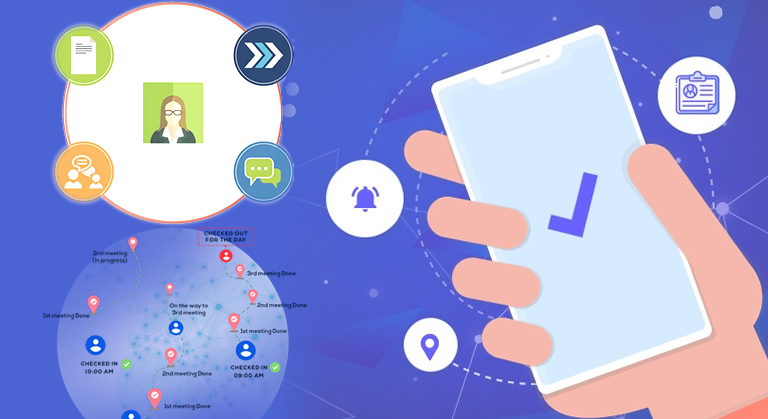It’s no secret that effective time management is one of the most important prerequisites for B2B sales success. What is surprising, however, is that today’s sales professionals spend the bulk of their time on non-revenue-generating activities, with 64.8 percent of their time spent on non-revenue-generating activities and right field sales solution actually return better results.
Let’s take a look at some of the issues that field sales people encounter and how field sales software may help.
1. Sales practices that aren’t consistent
Consistent message and processes are essential for a successful sales process. Although there is always some variation among consumers (no one is the same), regular sales efforts create consistent sales outcomes. The results of random sales efforts are also random.
2. Internal communication breakdown
The ability to communicate effectively between sales people and their supervisors, as well as between departments such as marketing and operations, is critical. It’s difficult to work wisely without it.
3. Sales training is limited.
Prospecting, financing, negotiating, pitching, and creating interest in a short period of time are just a few of the talents that a modern sales person needs to succeed in the B2B sector. No sales agent has a chance of reaching their objectives and developing over time without adequate onboarding and continuous training.
4. Unrealistic objectives
Obviously, you want to encourage your sales people to aim for the stars, but if you don’t balance that with a healthy dose of common sense when it comes to sales volume and client visits, the firm as a whole might suffer.
So, how can the sales software help?

- Clearly define your procedures
Sales people are “the most effective in controlling their sales pipelines if they have committed effort in developing a credible, structured sales process,” according to Harvard Business Review. By enforcing specific corporate standards and allowing workflows to control particular operations, field sales software aids in complying to set norms. In addition to consistency, make sure your sales software is flexible enough to allow any adjustments per client/account, as each customer is unique.
- Set goals, track them, and evaluate them
Managers may assign sales agents to territory and clients, establish sales objectives, and monitor sales success indicators using BI dashboards and reports by employing a sales force automation platform. This is also a great opportunity to recognize and reward sales team excellence, which is always a great motivator.
- Concentrate on tasks with a high return on investment
One of the most significant advantages of sales automation is the amount of time it saves your salespeople. Time spent on administrative and repetitive duties may now be transferred to more high-impact sales activities like up-selling, cross-selling, and establishing that all-important client connection. It also aids in prioritising tasks, allowing you to ensure that a representative visits the correct consumer at the appropriate time.
- Send and receive information from the field
Data sharing is essential for your representatives to work smarter. They can improve customer service and answer queries on the spot, regardless of where they are, thanks to integrations to ERP and other back office systems. They are no longer reliant on contacting the office for every small detail, and they can improve customer service and answer queries on the spot.
- Make a program for onboarding new employees.
Make sure your new hires have a well-structured training programme in place. Face-to-face training, online self-paced training, and, of course, field training are all part of the top sales training programmes.
Sales software may help new reps get up to speed in several ways: it supports guided selling by allowing managers to set very detailed workflows that assist reps in the sales process, and it can track rep activities so managers can provide fee reimbursement.

